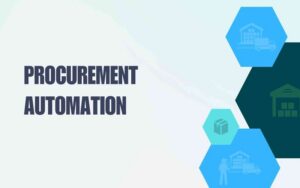Estate planning is a vital element of wealth management, particularly for HNIs (high-net-worth individuals). The process includes the strategic and careful planning of how personal assets must be managed as well as distributed. This approach not only ensures proper transfer of wealth as per your wishes but even assists in lowering legal complexities linked with taxes, thus endowing mental peace to both you as well as your heirs. Identifying and addressing common mistakes early can save you from potential emotional and financial distress. Outlined here are five estate planning mistakes and how to avoid them.
1. Not updating the estate plan
The dynamics of your life as well as the legislative framework are continuously evolving, which makes an outdated estate plan a common risk. For instance, new tax regulations can considerably affect the assets’ distribution and personal events such as a child’s birth or marriagemight alter your asset allocation intentions.
It is essential to treat your estate plan as a living document. A yearly assessment with a qualified estate planning professional assists in addressing changes in your legal areas and personal life. This practice not only keeps your estate plan effective and relevant but even avoids potential oversights that could compromise your financial benefits or wishes intended for your heirs.
2. Undermining the need for a professional advisor
Estate planning is a complicated strategy including legal structures, asset management, and tax planning. HNIs often have diversified portfolios that may involve international and domestic investments, distinct kinds of real estate and interests in various businesses, which need strategic planning and sophisticated management.
Engaging with professionals in wealth management and estate planning is important. Such experts bring a depth of knowledge linked with legal needs and financial products that can optimise tax implications and ensure all assets are managed and structured properly. They can foresee potential complexities and provide customised solutions that DIY (do it yourself) planning usually misses.
3. Lack of documentation
A correctly and comprehensively executed set of documents is imperative. Incomplete documentation can invalidate your efforts linked with estate planning, resulting in legal disputes that can drain estate resources and result in rifts among family members.
To ensure thoroughness, all documents such as trusts, wills, deeds and insurance policies must be legally pragmatic and reflect your wishes. Periodic checks by a trusted professional assistant verify that all documentation is updated, properly executed, and securely stored. This proactive approach can considerably lower the risk of future challenges or disputes to the estate.
4. Not factoring in the liquidity of the estate
A common oversight in estate planning is avoiding adequate liquidity to cover estate expenditures and taxes without the requirement to hastily liquidate assets. This is especially crucial if most of the estate is tied up in business interest or real estate, which are not readily convertible into cash.
Strategic planning must involve maintaining a balance between investments and liquid assets. Instruments such as life insurance can play an essential role here. A well-prepared life insurance policy may offer the required funds to cover estate taxes and other obligations without impacting the estate’s integrity. Moreover, setting aside a part of your portfolio in more liquid assets ensures your heirs have the hold to funds instantly following your demise.
5. Overlooking succession planning for family businesses
For HNIs with family-run businesses, business continuity can be jeopardised by not having an effective and clear succession plan. This planning is essential not just for a seamless transition of ownership and management but even for maintaining harmony within the family.
A pragmatic succession plan must involve identifying and nurturing potential successors early and implementing legal frameworks that facilitate a smooth transition. Training successors and gradually enhancing their responsibilities within the business can ensure they are ready to lead when the actual time comes. Specialists in business succession can endow valuable insights as well as frameworks that cater to the unique needs of family dynamics and business.
Ending note
Estate planning involves going through legal, emotional, and financial challenges. Identifying and correcting common mistakes in estate planning may not just protect your assets but even ensure their efficient and smooth transfer to the following generation. That’s why you must engage with professionals in estate planning, private banking, and wealth management. Proactive steps today can help secure a legacy tomorrow, making estate planning not only about preserving wealth but even about building a base for future generations.



